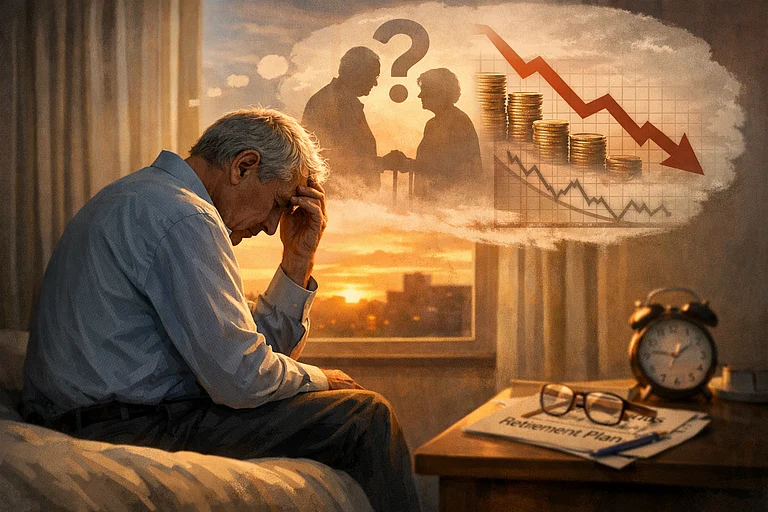How is India faring when it comes to being healthy on six key parameters of well-being, namely: Physical, Mental, Family, Financial, Workplace, and Social? It looks like stress has become a constant companion for the majority of Indians.
Around 80 per cent of citizens experience at least one symptom of stress on a regular basis, with women being disproportionately affected, according to ICICI Lombard General Insurance’s Indian Wellness Index 2024. The survey, conducted across 19 Indian cities, is based on responses from 69 per cent of males and 31 per cent of females, aged 18 to 50 years.
The report highlights that challenges faced by millennials in terms of physical health, family responsibilities, and financial stability have led to a 3-point decline in their overall wellness index. The situation looks even grim for corporate employees. This is what the data shows across various categories:
1. Is India Stressing Too Much?
The report notes that Indians commonly experience fatigue, which is prevalent across various groups. Moreover, people in Ties 1 cities show higher levels of depression symptoms as compared to others. Women, however, are facing a higher burden of stress, which is negatively impacting their mental and family wellness.
What is contributing to this stress? The rise in workplace pressure combined with a lack of work-life balance, and inadequate mental health support have all contributed to the decline in mental wellness scores in the past year.
Corporate Employees: Mental wellness for corporate employees stands at a low score of 60 as compared to 69 for the general population. The contributing factors to this high scale are workplace challenges, financial pressures, and the blurring of boundaries between professional and personal lives.
2. Are Millennials More At Risk?
On one hand, Gen X (those born between 1965-80) is showing improved overall wellness - increasing from 68 to 70 - the millennials (those born between 1981-96) on the other are under a lot of pressure. The report shows millennials are showing a declining trend in physical, family, and financial wellness.
Shockingly, smoking habits are on par between Gen Z and Gen X, with 26 per cent of Gen Z and Gen X reporting regular smoking. This divide specifically underscores the importance of targetted wellness initiatives, especially for our younger cohorts.
3. Significant Gaps In Heart Health Awareness
Although 84 per cent of Indians claim they are aware of heart diseases, only 25 per cent can correctly identify the true symptoms of a heart condition, the report highlights.
Around 40 per cent of respondents associate chest pain with heart problems, and only 36 per cent recognise the shortness of breath as a symptom. Moreover, many people incorrectly identify irregular sleeping habits as a major risk factor for heart disease, signaling an urgent need for improved education on cardiovascular health.
4. Health-tech: A Promising Advancement?
Individuals using fitness tracking devices show significantly higher wellness scores - 72 compared to 54 non-users, the report finds. The numbers show that digital health technologies including fitness apps and wearables devices are pushing individuals towards healthier lifestyles and better self self-care practices.
5. Is Social Media Impacting Wellness?
In the digital era, almost everybody is impacted by some or the other way by social media. Where most people share everything on internet, health couldn’t quite miss the trend.
The data shows that 70 per cent of Indians use social media to discuss or learn about wellness, with Instagram (87 per cent) and YouTube (81 per cent) playing pivotal roles.
The fact that so many people are taking to social media for health education is an alarming trend in itself. It raises questions about the quality and reliability of the information people are consuming on such platforms and who is keeping it in check.
However, as India grapples with wellness challenges, the path ahead requires a critical and holistic approach. Health no longer is just a matter of physical fitness or diet, but a complex interplay of factors such as mental, familial, and social - both across digital and physical parameters.














